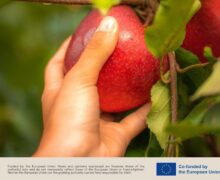Tourism in China starts up again… but let’s remain realistic

It was revealed that the number of deals announced in Asia-Pacific increased by 56.7 per cent – during the week ending April 5 compared to the previous week. Some describe it as “a sign of revival of optimism”.
Deal activity increased in most of the key markets with China posting an increase in volume of 52.3 per cent, and Japan, India and South Korea by 68.6 per cent, 93.3 per cent and 38.9 per cent, respectively.
Sectors such as healthcare (including pharmaceuticals and medical equipment), and travel and tourism, also witnessed week-over-week improvement in deal activity.
However, the latest poll conducted by the Global Business Travel Association (GBTA) between April 1 and 4 with responses from 974 GBTA global member companies, is sobering.
On the impact in Asia, GBTA members reported their companies cancelled or suspended “all” or “most” business trips to China – 99 per cent, Hong Kong – 99 per cent, Taiwan – 98 per cent, and other Asia-Pacific countries (Japan, South Korea and Malaysia) – 98 per cent.
“Almost every GBTA member company (98 per cent) reported cancelling and/or suspending all international business travel,” Solombrino noted.
“I think Asia will come out of this faster than the rest of the world as some countries have been better prepared. Domestic markets will recover fastest. Then international will take some time, and this will be where the value of some of the emerging search technology data can be tested.
Meanwhile governments across Asia are tightening the screws on social distancing and travel restrictions, with many announcing the extension of travel bans and lockdowns, in a bid to stem the Covid-19 spread.
India’s prime minister Narendra Modi is set to extend the nationwide lockdown for another two weeks in response to the growing fallout in the country, which boasts a population of 1.3 billion.
Malaysia’s government has announced a second extension of the movement control order (MCO) by another two weeks to April 28. All businesses, schools, religious institutions, and government offices will remain shut, and only essential services including banks, supermarkets, and pharmacies are allowed to operate. All mass gatherings are also banned.
By the order of the Indonesian president Joko Widodo, schools, offices, public spaces and entertainment venues in Jakarta continue to remain closed. As well, religious gatherings, social and cultural activities, public celebrations like weddings, and any gatherings of more than five people are also banned during the isolation period.
Companies in eight essential industry sectors such as health, food, energy, communications, finance and banking, delivery of logistics and daily needs, are allowed to remain fully operational.
Furthermore, public transportation services are permitted to operate only from 06.00 to 18.00, with passenger capacity capped at 50 per cent of the usual limit. App-based motorcycle taxis are also barred from transporting passengers.
In Japan, following the lockdown of several prefectures, the governors of Aichi and Kyoto, the eighth and tenth worst hit prefectures, asked the government to grant them the state-of-emergency classification. Also Gifu and Hokkaido have declared a state of emergency, but they cannot requisition buildings or supplies without the government classification.
Narita Airport shut one of its two runways on Sunday, in response to a slump in air traffic and the “soft lockdown” requirement of limited on-site workers. Lack of demand has also pushed Haneda Airport to close its new passenger facility at Terminal 2. Interestingly enough, all passengers arriving in Japan at Tokyo Narita airport are tested for Coronavirus upon landing. While they wait for the results, they can stay at a kind of cardboard box hotel at the baggage claim. The cost for travellers to stay in the boxes is 140 USD. Furthermore, passengers can only leave Narita with friends or family in a private vehicle. Passengers who cannot be picked up are barred from catching public transport or taxis. Consequently many are sleeping in makeshift cardboard box accommodation, provided by the Japanese Government until travelers return a test result for coronavirus.
The cardboard beds have a futon mattress that is “pretty good”, according to an online review from a passenger who arrived at Narita on an ANA flight from Vietnam.
MMP
photo: AP




